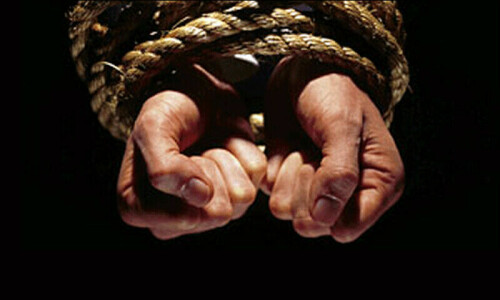LAHORE, April 26: Former Maoist and founding member of the National Students Federation (NSF), Prof Azizuddin Ahmed, on Saturday welcomed the revival of student unions and argued that they had a positive role to play in society by broadening students’ perspectives and inculcating a democratic culture.
Speaking at a student gathering organised at Zaman Park by the Institute for Peace adnd Secular Studies, Prof Ahmed said: “The most important thing about student unions is that they open students’ minds to different arguments and allow cultural exchanges between those studying in various subject areas.”
He argued that the rise of the Islami Jamiat Talba (IJT), which began towards the end of Field Marshal Ayub Khan’s era, dealt a severe blow to the peaceful democratic aspirations of rival student groups and said its success lay in the fact that it was supported by successive military regimes as well as the United States via the Institute of Educational Research, which viewed it as a tool to fight the communist forces of the time.
He said the success of any educational institution lay in its ability to provide a free and open learning environment. Citing the Punjab University’s past glories, Prof Ahmed said the university had two Nobel laureates before partition and continued to be an internationally renowned institution right up until the 1960s when the Jamaat began to build its stranglehold.
He recalled that the university’s reputation began to diminish shortly after the first campus killing, of Barkat Ahmed at PU in 1971, and argued that groups like the IJT appealed to human beings’ most base and backward instincts by promoting a culture of violence and fascism.
Asked what role political parties have to play in the future setup of student unions, Prof Ahmed said: “They should be free to campaign but at the minimum they must eschew fascism and violence and instead follow democratic norms.”
He added that he was not in favour of political parties keeping students on their payroll or creating Mafioso structures as the Muttahida Qaumi Movement (MQM) had done in Karachi.
He concluded by saying that, as an optimist, he expected the nation to have learnt from its past and said that a combination of a freer media, galvanised civil society and greater access to information had reduced primitive and violent instincts that were prevalent in yesteryears. —Staff Reporter















































